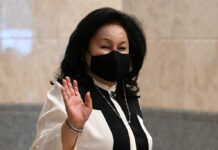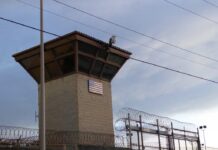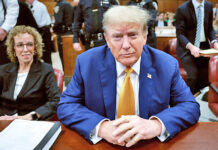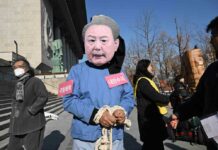TAIPEI, Taiwan (AP) — Taiwanese are casting their votes Saturday for a new president in an election that could chart the trajectory of its relations with China over the next four years.
At stake is the peace and stability of the 177-kilometre-wide strip of water between the Chinese mainland and the self-governed island claimed by China as its own.
Vice President Lai Ching-te, representing the governing Democratic Progressive Party, known as the DPP, seeks to succeed the outgoing President Tsai Ing-wen and give the independence-leaning party an unprecedented third term. Lai will be voting in his hometown of Tainan.
Hou Yu-ih, the candidate of Beijing-favoured Kuomintang Party, also known as the Nationalist Party, will be casting his ballot in New Taipei City.
Alternative candidate Ko Wen-je of the Taiwan People’s Party, who has shown popularity among young voters who seek an alternative to the two major parties, will be voting in Taipei.

Voting began at 8am (0000 GMT) Saturday and was to wrap up eight hours later.
Candidates wrapped up their campaigns Friday night with stirring speeches, but younger voters were mostly focused on their economic futures in a challenging environment.
Speaking in his hometown of Tainan in the island’s south, Lai reflected on why he left his career as a surgeon because of China’s missile tests and military exercises aimed at intimidating Taiwanese voters before the first open presidential election in 1996.
“I wanted to protect the democracy that had just gotten underway in Taiwan. I gave up my well-paid job and decided to follow the footsteps of our elders in democracy,” Lai said.
Hou, a former head of Taiwan’s police force and mayor of the capital’s suburbs, said Lai’s view on relations with Beijing could bring uncertainty and even the possibility of war.
“I advocate pragmatic exchanges with China, the defence of national security, and protection of human rights. I insist that Taiwan’s future will be decided by 23.5 million (people of Taiwan) and I will use my life to protect Taiwan,” Hou said.
China’s military threats could sway some voters against independence-leaning candidates, but the US has pledged support for whichever government emerges, reinforced by the Biden administration’s plans to send an unofficial delegation made up of former senior officials to the island shortly after the election.
That move could upset efforts to repair ties between Beijing and Washington that plunged in recent years over trade, COVID-19, Washington’s stepped-up support for Taiwan and Russia’s invasion of Ukraine, which China has refused to condemn at the United Nations.
Apart from China tensions, the Taiwan election largely hinges on domestic issues, particularly an economy that was estimated to have grown just 1.4 per cent last year. That partly reflects inevitable cycles in demand for computer chips and other exports from the high-tech, heavily trade-dependent manufacturing base, and a slowing of the Chinese economy.
But longer-term challenges such as housing affordability, a yawning gap between rich and poor, and unemployment are especially prominent.



















































